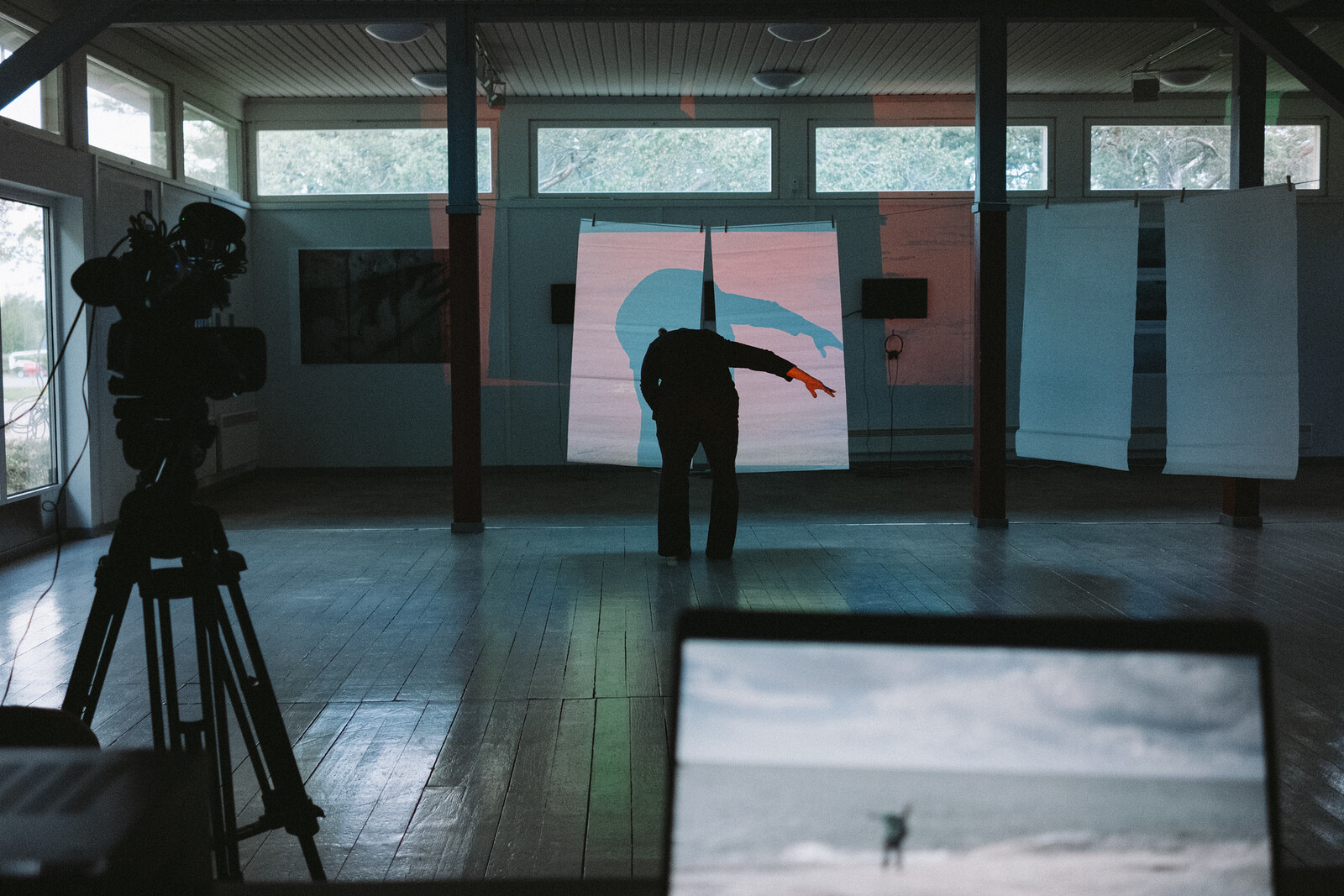Artistic research in performing arts and programme in fine arts
Application period: September 2–16, 2024
The University of the Arts Helsinki, consisting of three academies, Academy of Fine Arts, Sibelius Academy and Theatre Academy, provides an inspiring environment for learning, research, and artistic activity.
We are now accepting applications to doctoral programmes organised at the Academy of Fine Arts and the Theatre Academy.
Academy of Fine Arts
Application period: September 2–16, 2024
The Academy of Fine Arts will admit a maximum of eight new students to the Doctoral programme in fine arts. The new doctoral students start their studies in autumn 2025.
The doctoral programme offers a collegial environment for carrying out independent and creative artistic research. Artistic research is multidisciplinary research grounded in the artists and their art. Artist-researchers graduating from the programme develop and renew the field of contemporary art in terms of art practice, research, curating, teaching, and societal engagement.
In addition to the doctoral programme, the Academy of Fine Arts offers bachelor’s and master’s degree programmes. These include the BA programme in history and theory of contemporary art, the Praxis MFA programme in exhibition studies, and the 2-cycle BA+MFA programme in fine arts that offers teaching in four study areas: painting, printmaking, sculpture, and time and space arts (moving image, photography, and site and situation specific art). The doctoral programme is aimed for professional artists working in these areas and in visual arts more widely.
The target degree of the Doctoral programme in fine arts is Doctor of Fine Arts (DFA). It comprises 240 ECTS, which corresponds to four years of full-time studies. The degree includes doctoral studies (60 ECTS) and the doctoral thesis in fine arts (180 ECTS).
A doctoral thesis in fine arts is expected to demonstrate profound understanding of the field and show the doctoral student’s ability to analyse, articulate, and contextualise research questions critically. It consists of a maximum of three artistic components and a written component. The relative scopes of the components can vary case by case. Based on an accepted research plan, the doctoral thesis may also consist of solely written research. The artistic components may include exhibitions, curatorial projects, individual artworks, or experimental arrangements and their articulation, conceptualisation, and theorisation. The artistic components of a doctoral thesis must be pre-examined and publicly displayed. Doctoral students are expected to seek funding for their research from relevant bodies.
More information about the Doctoral programme in fine arts.
Application instructions to the Doctoral programme in fine arts.
Enquiries: kuva.admissions [at] uniarts.fi.
Theatre Academy
Application period: September 2–16, 2024
The University of the Arts Helsinki’s Theatre Academy will admit a maximum of eight new doctoral students to commence studies at the Doctoral programme of artistic research in performing arts in the autumn term of 2025.
Doctoral studies and research at the Theatre Academy are organised by the Performing arts research centre (Tutke). Performing arts refer to the disciplines represented at the Theatre Academy: acting in Finnish, acting in Swedish, choreography, comparative dramaturgy and performance research, dance, dance pedagogy, directing, dramaturgy and playwriting, lighting design, live art and performance studies, scenography, sound design, theatre pedagogy, writing.
Doctoral studies and research carried out at Tutke are defined as artistic research. Graduates from the doctoral programme are artist-researchers with a Doctor of Arts (Theatre and Drama), Doctor of Arts (Dance), or Doctor of Arts (Art and Design) degree.
During the doctoral studies, the doctoral candidate carries out an artistic research project on a topic of their choice and acquires the skills and knowledge of an artist-researcher. As experts in their respective fields, artist-researchers trained at Tutke increase society’s understanding of the arts, humanity and the world by developing art-making, pedagogy and research. The doctoral candidates collaborate and engage in a comprehensive and critical dialogue with various actors in society. They create art and produce information, knowledge, and insights based on art-related practices that can be applied in the arts and in other fields and areas of society. Doctoral training develops the artist-researchers’ ability to apply their skills as artists, researchers, teachers, and experts in their field.
The scope of the doctoral degree is 240 ECTS credits: the doctoral research is worth 180 ECTS credits and studies in research skills are worth 60 ECTS credits. Doctoral candidates are expected to seek funding for their research from relevant bodies.
More information about the Doctoral programme of artistic research in performing arts.
Application instructions to the Doctoral programme of artistic research in performing arts.
Enquiries: teak.doctoral.admissions [at] uniarts.fi.



